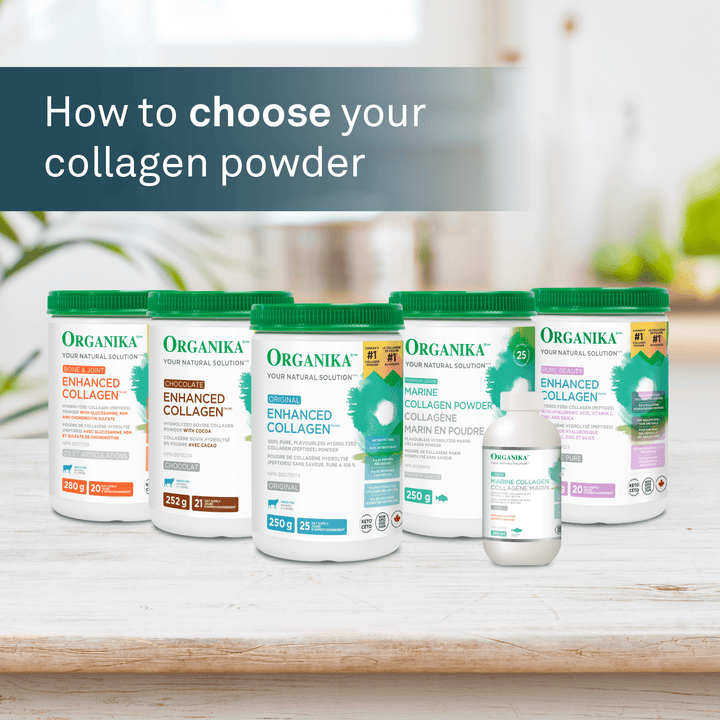
You’ve probably heard about the benefits of medium chain triglycerides (MCTs) already. You might even be adding it to your morning coffee or throwing it in your dressings. Most likely, it’s because you’ve heard that they can boost energy, improve brain function and maybe even help you lose weight… and they can! But the benefits of MCTs don’t stop there. I recommend getting MCTs in your diet if you have impaired digestion, inflammation or leaky gut. MCTs can improve all of these conditions through various mechanisms that help to heal your gut, calm your immune system and reduce inflammation. In my practice, these are our primary goals when we’re looking to combat autoimmune disease and many other chronic illnesses.
Reduce Pro-Inflammatory Cytokines
MCTs can dramatically reduce the production of a variety of proinflammatory cytokines (1). Cytokines are small secreted proteins released by cells that have a specific effect on the interactions and communications between cells (2). Proinflammatory cytokines are secreted by immune cells like helper T cells (Th-1 and Th2), which are out of balance in those with autoimmune disease (3). These types of cytokines promote inflammation and, when excreted in excess, contribute to systemic damage, autoimmune attacks and inflammatory diseases. The proliferation of these types of cytokines has also been linked to depression and other neurological diseases (4). Medium chain triglycerides seem to have the ability to reduce the production of these pro-inflammatory molecules. In the gut and throughout the rest of the body (5), they an be used as a powerful tool for reducing inflammation in those afflicted with these inflammatory symptoms. They can also work as a preventative measure for regulating the immune system (6).

Reduce Histamine
MCTs can increase the activity of the histamine-clearing enzyme diamine oxidase (7). This prevents the ability for histamine to build up in your system, which can cause histamine intolerance or allergy. Histamine is an inflammatory compound released by mast cells and basophils, which are most prevalent at sites of potential injury – the nose, mouth, feet, gut and blood vessels (8). Histamine is released when these mast cells or basophils are exposed to allergens. This is when you get your itchy eyes, runny nose, sneezing and other common allergic responses. It may also result in headaches or migraines, fatigue, hives, digestive issues, nausea, vomiting, abdominal cramping, heart palpitations, tissue swelling and high blood pressure. These are the symptoms of histamine intolerance. A histamine intolerance is usually developed due to an overproduction of histamine or an inability to clear histamine. This is due to a deficiency in the enzyme diamine oxidase (DAO), which clears it (9). You show symptoms when the amount of histamine hits a tipping point, like a glass of water overflowing. To get that histamine intolerance under control, we must reduce histamine production, increase DAO and often reduce histamine consumption (it’s in our food too!). Reducing histamine can be an important part of calming autoimmune disease because the inflammatory molecules have the ability to localize in place where your autoimmune disease is already causing damage, intensifying the inflammatory response in those areas (10). MCTs are just one valuable tool we can implement to help support the activity of DAO to reduce the proliferation of histamine and calm the autoimmune response.
Increase Mucous Production
The mucous layer is a protective coating that covers the entire GI tract. Without it, our gut is vulnerable to ulcers, infection, inflammation and, of course, leaky gut (11). Our mucosal layer is often damaged due to stress, bacterial overgrowth, excess sugar consumption, overuse of NSAIDs, and consumption of food allergens (12, 13). MCTs can increase mucous production in the gut to restore your gut barrier health (7). This is essential for the prevention and reduction of autoimmune attacks, as it may help to prevent infections and reduce inflammation in the gut as well as improve overall digestion, absorption and assimilation of nutrients (14, 15).
Heal Leaky Gut
A “leaky gut” is the colloquial way of saying increased intestinal permeability. This is, essentially,a condition in which your gut barrier is faulty. It allows undigested food, bacteria and other substances from the GI tract, through to the bloodstream. When this happens, we expose our immune system to stimuli that can mount intense immune responses and create antibodies. As this persists, those antibodies may become confused and attack your bodies own tissues and organ systems – this is the mechanism of autoimmune disease (16). For this reason, healing a leaky gut is the first step in healing autoimmune disease.
MCTs may help to do this in two ways.
- MCTs can help to restore tight junction proteins (17). Your tight junction proteins are the little guys that hold the cells of your gut lining together. If they are damaged or malfunctioning, a leaky gut occurs. If we can restore tight junction proteins, we are on our way to healing leaky gut.
- MCTs can help to increase cell-turnover rate in the gut (18). Sometimes, when we see increased intestinal permeability, the tight junctions are not the problem. Rather, there has been damage to the cells of the gut lining that has created holes or pathways through them. If we can increase the cell-turnover rate, we can replace those damaged cells more rapidly.
Through both of these mechanisms, MCTs can be a valuable addition to your diet for healing and preventing leaky gut.
Increase Secretory IgA
Secretory IgA (sIgA) is an antibody secreted by mucosal tissue and acts as the first line of defense of the GI mucosa and epithelial cells of the gut lining. It may also play an important role in the regulation of microbiota composition and in decreasing proinflammatory responses from pathogenic bacteria and allergenic antigens. Low sIgA is highly associated with increased autoimmune disease risk. MCTs can can naturally increase the secretion of IgA antibodies in the gut, especially in Peyer’s Patches an important part of your GI immune system (19).
So how should I include MCTs in my diet?
If you have never used MCTs in your diet before, I recommend that you start with MCT oil powder. MCT oil is known to cause digestive upset in beginners. This is likely due to the way we metabolize it very quickly. This can cause a physiological response that promotes movement and sometimes cramping. It may also be due to the ability of lauric acid to eliminate bacteria and yeast. When we kill them off we often experience irritation in the gut and sometimes peripheral symptoms such as redness or headaches. Both of these reactions tend to pass over time. By slowly increasing the amount you take, your body can adjust. To bypass these nasty side effects altogether, I recommend the MCT oil powder, which is proven to be easier on the digestive system. This allows you to consume more at once. A preliminary study also suggests that MCTs in the form of powder could improve nutrient digestibility. As well, MCT oil powder tends to be more convenient. You can pack it into smaller containers and take it wherever you need to go without worrying about spilling or leaking. It is also much lighter for travel, and is a more versatile product. Where the oil can be added to a hot drink or dressing, the powder can be added to virtually any dish.
It works especially great in baking! I recommend starting with my MCT Collagen Macaroons!
Find an AIP coach near you on this database or contact me, Megan O’Kelly (CNP), The Realistic Holistic, at info@therealisticholistic.com to see if I am the right nutritionist to help you through your autoimmune journey! Follow along my journey in Instagram!
SOURCES
1) Zhong, W, et al. “Dietary Fat Sources Differentially Modulate Intestinal Barrier and Hepatic Inflammation in Alcohol-Induced Liver Injury in Rats.” PubMed, U.S. National Library of Medicine, 10 Oct. 2013, www.ncbi.nlm.nih.gov/pubmed/?term=Dietary fat sources differentially modulate intestinal barrier and hepatic inflammation in alcoholinducedliver injury in rats.
2) Zhang, Jun-Ming and Jianxiong An. “Cytokines, inflammation, and pain” International anesthesiology clinics vol. 45,2 (2007): 27-37
3) Kim, BS., Park, YJ. & Chung, Y. Arch. Pharm. Res. (2016) 39: 1537. https://doi.org/10.1007/s12272-016-0823-8
4) Young, Juan Joseph, et al. “A Review of the Relationship between Proinflammatory Cytokines and Major Depressive Disorder.” NeuroImage, Academic Press, 30 July 2014, https://pubmed.ncbi.nlm.nih.gov/25128861/.
5) Akira Andoh, Hiroki Takaya, Yoshio Araki, Tomoyuki Tsujikawa, Yoshihide Fujiyama, Tadao Bamba; Medium- and Long-Chain Fatty Acids Differentially Modulate Interleukin-8 Secretion in Human Fetal Intestinal Epithelial Cells, The Journal of Nutrition, Volume 130, Issue 11, 1 November 2000, Pages 2636–2640, https://doi.org/10.1093/jn/130.11.2636
6) Mantis, N J et al. “Secretory IgA's complex roles in immunity and mucosal homeostasis in the gut” Mucosal immunology vol. 4,6 (2011): 603-11.
7) Ishii, K., Kono, H., Hosomura, N. et al. J Gastroenterol (2009) 44: 204. https://link.springer.com/article/10.1007%2Fs00535-008-2308-0.
8) Kovacova-Hanuskova, E, et al. “Histamine, Histamine Intoxication and Intolerance .” Comenius University in Bratislava, Jessenius Faculty of Medicine, Department of Pathophysiology, Mala Hora, 036 01 Martin, Slovakia, Elsevier, 1 May 2015, www.elsevier.es/en-revista-allergologia-et-immunopathologia-105-linkresolverhistamine-histamine-intoxication-intolerance-S0301054615000932
9) Laura Maintz, Natalija Novak; Histamine and histamine intolerance, The American Journal of Clinical Nutrition, Volume 85, Issue 5, 1 May 2007, Pages 1185–1196, https://doi.org/10.1093/ajcn/85.5.1185
10) Kim, Kyoung-Woon, et al. “Histamine and Histamine H4 Receptor Promotes Osteoclastogenesis in Rheumatoid Arthritis.” Nature News, Nature Publishing Group, 26 Apr. 2017, https://www.nature.com/articles/s41598-017-01101-y.
11) Pelaseyed, Thaher et al. “The mucus and mucins of the goblet cells and enterocytes provide the first defense line of the gastrointestinal tract and interact with the immune system” Immunological reviews vol. 260,1 (2014): 8-20.
12) Faderl, Martin, et al. “Keeping Bugs in Check: The Mucus Layer as a Critical Component in Maintaining Intestinal Homeostasis.” Biochemistry and Molecular Biology Education, Wiley-Blackwell, 24 Apr. 2015, https://pubmed.ncbi.nlm.nih.gov/25914114/.
13) Luissint, Anny-Claude et al. “Inflammation and the Intestinal Barrier: Leukocyte-Epithelial Cell Interactions, Cell Junction Remodeling, and Mucosal Repair” Gastroenterology vol. 151,4 (2016): 616-32.
14) Hansson, Gunnar C. “Role of mucus layers in gut infection and inflammation” Current opinion in microbiology vol. 15,1 (2011): 57-62.
15) Hong, S M et al. “Effect of Medium-chain Triglyceride (MCT) on Growth Performance, Nutrient Digestibility, Blood Characteristics in Weanling Pigs” Asian-Australasian journal of animal sciences vol. 25,7 (2012): 1003-8.
16) Bischoff, Stephan C et al. “Intestinal permeability--a new target for disease prevention and therapy” BMC gastroenterology vol. 14 189. 18 Nov. 2014, doi:10.1186/s12876-014-0189-7
17) Yan, Hui and Kolapo M Ajuwon. “Butyrate modifies intestinal barrier function in IPEC-J2 cells through a selective upregulation of tight junction proteins and activation of the Akt signaling pathway” PloS one vol. 12,6 e0179586. 27 Jun. 2017, doi:10.1371/journal.pone.0179586
18) Derek J. Ruthig, Kelly A. Meckling-Gill; Both (n-3) and (n-6) Fatty Acids Stimulate Wound Healing in the Rat Intestinal Epithelial Cell Line, IEC-6, The Journal of Nutrition, Volume 129, Issue 10, 1 October 1999, Pages 1791–1798, https://doi.org/10.1093/jn/129.10.1791
19) Faderl, Martin, et al. “Keeping Bugs in Check: The Mucus Layer as a Critical Component in Maintaining Intestinal Homeostasis.” Biochemistry and Molecular Biology Education, Wiley-Blackwell, 24 Apr. 2015, https://pubmed.ncbi.nlm.nih.gov/25914114/.


